A New Season of 20 Summers
Cultural history and political resistance are prominent themes in the five weeks of programming recently announced by 20 Summers for its 12th season.

The lineup of performances and workshops, which begin on Friday, May 16 and take place in the historic Hawthorne Barn on Miller Hill Road in Provincetown, will feature a few firsts this year. In one new venture, 20 Summers will devote two programs to the history and contributions of Provincetown’s Portuguese community.
“This will be a full day focused on Provincetown’s Portuguese roots,” says 20 Summers Program Director Alice Gong. The first program features resident artist Margarida Correia, who is working on a photographic project documenting the experience of Portuguese immigrants. At her 20 Summers event on June 1, Correia will explore the connections between the families of the Azores and Provincetown.
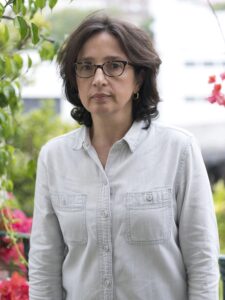
The second program, also scheduled for June 1, is a conversation with Portuguese architect André Tavares, Toronto-based architectural historian Christy Anderson, and Scott Landry of the Center for Coastal Studies Whale Disentanglement Team. They will discuss how fishing, the lifeblood of Provincetown’s Portuguese community, shaped marine architecture and the character of coastal communities.
Another initiative is a 20 Summers partnership with Site-Specific Dances, a performance company that will invite its audience to be part of Erosions, described as “a community-based intergenerational dance and oral histories project exploring Provincetown’s LGBTQ+ history.”

“I am always excited to incorporate movement and workshops at the barn and get people more involved,” says Gong.
The 20 Summers schedule at the barn will be followed by a roster of events during the summer at Stanley, the organization’s new venue at 494 Commercial Street.

“I hope that the Hawthorne Barn and Stanley can be places of solace and communion this summer,” says Gong. “In programming our season, we were conscious of sticking our necks out, going against the current political climate in resistance and protest and having art shine through.”
See 20summers.org for a complete schedule and ticket information. —Katy Abel
Making Beautiful Chamber Music Together
In a piano trio — piano, violin, and cello — “the piano drives the bus,” says violinist Heather Goodchild Wade, who is co-director of Giocosa Chamber Music. Where a string quartet is “nimble,” says Wade, a piano trio is not. That’s just the nature of the enormous instrument — the violin and cello are spirited appendages to its beastly beauty. Together, they bring to life the often intricate compositions of the genre.
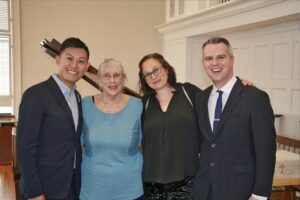
This weekend, Giocosa will present “Swept Away,” a concert including Joaquin Malats’s Piano Trio in B flat and Franz Schubert’s Piano Trio in E flat, at Wellfleet Preservation Hall (335 Main St.) on Saturday, April 12 and at the First Congregational Church of Chatham (650 Main St.) on Sunday, April 13.
Wade and cellist Elizabeth Schultze, also a co-director of the group, met in 2006 when they played with the Cape Symphony. For their concerts this weekend, Wade and Schultze will be joined by New York-based pianists Steven Mann and Ray Wong, a married couple who come as a “package deal,” says Wade.
For “Swept Away,” Wong will play the Malats trio, and Mann will play the Schubert. Schubert was the celebrated Austrian composer of symphonies, songs, and chamber works. Malats, who is less well known, was a Catalan pianist and composer from Barcelona. His trio is dedicated to his friend, composer Camille Saint-Saëns.
Both works on the program are Romantic, written in a time when composers sought to express their innermost feelings outside the boundaries of language.
“That’s where ‘swept away’ comes from,” says Wade. “Being swept away by your inner life and then presenting yourself on the page. It’s a little bit more ‘bleeding heart’ than Mozart or Haydn.”
In the past, says Wade, Giocosa has programmed concerts with a “pointed” message, like a program in February that emphasized diversity in American music. But this weekend’s concerts aren’t intended to impart a lesson.
“Sometimes people just want to come and hear beautiful music,” she says. “That’s what this one is.”
See giocosachambermusic.com for tickets and more information. —Dorothea Samaha
Big Words for a Legendary Provincetown Figure
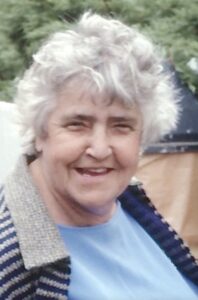
By all accounts, Grace Gouveia was larger than life. “Known for her flowing muumuu dresses, enveloped in billowing cigarette smoke, [Gouveia] arrived in Provincetown at the age of seven in 1916 and lived the American dream,” says artist Jay Critchley about the teacher, poet, and community activist who died in 1998. “Recognized for her radical approach to teaching 5th- and 6th-graders for 27 years, she went on to join the Peace Corps, teach in Harlem, and found the Provincetown Council on Aging.” (Critchley adds that Gouveia was excommunicated from the Catholic Church for her advocacy of birth control.)
This month, Critchley is planning a correspondingly outsize tribute to Gouveia: On April 14, he will unveil the latest installment of “Smoking Bomb,” a project he began in 2012. Weather permitting, Critchley will inscribe an excerpt from Gouveia’s poetry in giant letters on the lawn at Motta Field with white chalk, intended to be viewed from the top of the nearby Pilgrim Monument.
“Grace was a close friend who was engaged in all aspects of the town,” says Critchley. “We shared a deep interest in local history and the importance of community.” He says he will be raising funds to publish a book of Gouveia’s poetry.
Critchley staged a previous Smoking Bomb event in 2012 in which he had originally planned to project an experimental short film about Gouveia onto Long Point Light in Provincetown. After the Coast Guard deemed the projection a “navigational hazard,” Critchley constructed a lighthouse-shaped screen on the town landing beach behind the Aquarium Marketplace and projected the film in what he called the “Long Point of View Theater.”

There will be a community unveiling and viewing party for the installation at the Pilgrim Monument at 4 p.m. on Monday, April 14, preceded by music by Ken Field and a performance by the Movimento Dance Company on Motta Field at 2 p.m. The first 50 visitors to take a selfie at the top of the monument that day will receive a copy of Critchley’s 1982 all-ages activity book Build Your Own Pilgrim Monument, for which Gouveia wrote the text.
The installation is timed to be a valedictory of sorts to the “old” Motta Field in advance of its planned redevelopment. While $11.7 million was approved for the project by Provincetown voters in April 2024, a construction schedule has not yet been announced.
The Motta Field installation will be on view for as long as the elements permit. See jaycritchley.com for information. —John D’Addario
A Play About Female Friendship and Strength
Holding rehearsals for Steel Magnolias at the Academy Playhouse in Orleans during International Women’s Month in March was a coincidence, says director Anna Marie Johansen. The production of the play about strong and resilient women wasn’t intended to make a political statement.

“But if someone sees the play and feels, ‘My goodness, these women are so capable,’ let that subliminal message come through,” she says.
Robert Harling’s 1987 comedy-drama takes place over three years in a small-town hair salon, which Johansen describes as a world where the women bond and “can go for support and solace, to share joys, sorrows, and complaints.” Harling wrote the play as a tribute to his sister, who died young, and the steely Southern women who were her family and friends. Each of the play’s six characters is a hero, Johansen says, working “in her own quiet and dedicated way to win her own battles.”
During the first production of the show in Chatham in 2022, as well as in the current production, Johansen has resisted the influence of the 1989 film version, which starred Sally Field, Julia Roberts, Olympia Dukakis, and Dolly Parton. She’s also pushed back against stereotypical assumptions about how women react to conflict.
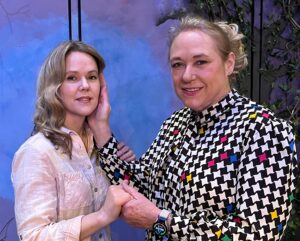
“Women rarely fall apart,” she says. “Or when they do, they pull themselves together again very quickly in comparison to men.” One of Johansen’s first directions to the cast, she says, was telling them to remember having the “quiet strength” that got them through each day. “Then I let them play that out,” she says.
The play runs from Thursday, April 17 through Sunday, May 4 at Academy Playhouse, 120 Main St., Orleans. Tickets are $30 to $40 at academyplayhouse.org. —Kathi Scrizzi Driscoll
The More the Better at Castle Hill
When Truro Center for the Arts at Castle Hill was founded in 1972 by sculptor Joyce Johnson, there were 15 faculty members teaching 17 classes. This year, its summer program will feature more than 150 events and workshops offered over a 12-week period beginning in early June in two locations, Castle Hill’s main campus at 10 Meeting House Road and Edgewood Farm at 3 Edgewood Road.
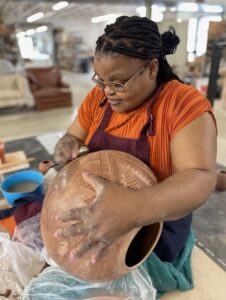
One of this summer’s highlights is Fabric to Form: Environmental Sculpture With Recycled Materials. Beginning on June 16, the class is described as an “immersive” four-day session “where art, sustainability, and collaboration meet in the creation of a unique outdoor sculpture,” according to workshop leader Thomas Jackson. Participants will be encouraged to bring their own fabrics to incorporate in their projects. “The more we have to work with, the better,” says Jackson.
A new offering this year is a four-day intensive clay workshop with fourth-generation Zulu potter Jabu Nala, who will teach methods of making traditional coil-built beer pots — from coiling and shaping to burnishing and surface design — along with their historical and cultural context. The traditional methods contrast with those taught in another new class, 3D Printing with Clay, in which participants will use a computer and 3D printer to fabricate original designs. “The instructor is bringing her printer and will explain how it works,” says Castle Hill Executive Director Cherie Mittenthal. “The process is slower, but you can do interesting faceted or angled things you can’t do with a potter’s wheel.”
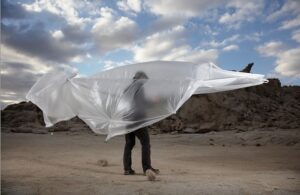
Computer technology is featured in Photography and Digital Arts Week in early August, which will include workshops incorporating animation, darkroom, digital, pinhole, and camera phone techniques. Photographer Rebecca Bruyn will teach a class on “iPhoneography,” described as “the taking and editing of photos on an iPhone or iPad and processing the image through a variety of creative apps.”
Another highlight is a series of classes on creative well-being, including Amanda Ménage’s Understanding Natural Fragrances on Aug. 1. According to the workshop description, participants will “explore a selection of top, middle, and base notes from the perfumer’s palette of genuine botanical extracts” — and will create their own bottle of eau de parfum to take home.
See castlehill.org for a complete course schedule and registration details. —Susan Rand Brown



